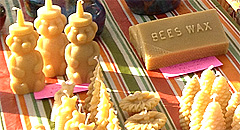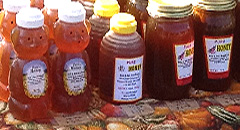It isn’t difficult to make your yard, garden or even patio space a haven for beautiful beneficial bees. You will be helping these important insects, as well as bringing more nature to your back door.
The greater the plant diversity, the more bees you will attract and support. Always try to choose as many native plants as possible, and consult with nursery staff or other experts to find vegetation that will thrive in your specific conditions.
Here is a partial list of tried- and- true bee attractors:
Annuals: Asters, Marigolds, Sunflowers, Zinnias
Perennials: Clematis, Cosmos, Dahlias, Echinacea, English Ivy, Foxglove, Geraniums, Hollyhocks, Hyacinth, Roses, Sedum, Tansy
Garden Plants: Blackberries, Cantaloupe, Cucumbers, Gourds, Peppers, Pumpkins, Raspberries, Squash, Strawberries, Watermelons, Wild Garlic
Herbs: Bee Balm, Borage, Catnip, Cilantro, Fennel, Lavender, Mints, Rosemary, Sage, Thyme
Shrubs: Blueberry, Butterfly Bush, Honeysuckle, Indigo, Privet
Trees: Alder, American Holly, Basswood, Black Gum, Black Locust, Buckeyes, Catalpo, Eastern Redbud, Fruit Trees (especially Crab Apple), Golden Rain Tree, Hawthorns, Hazels, Linden, Magnolia, Maples, Mountain Ash, Sycamore, Tulip, Poplar, Willows










